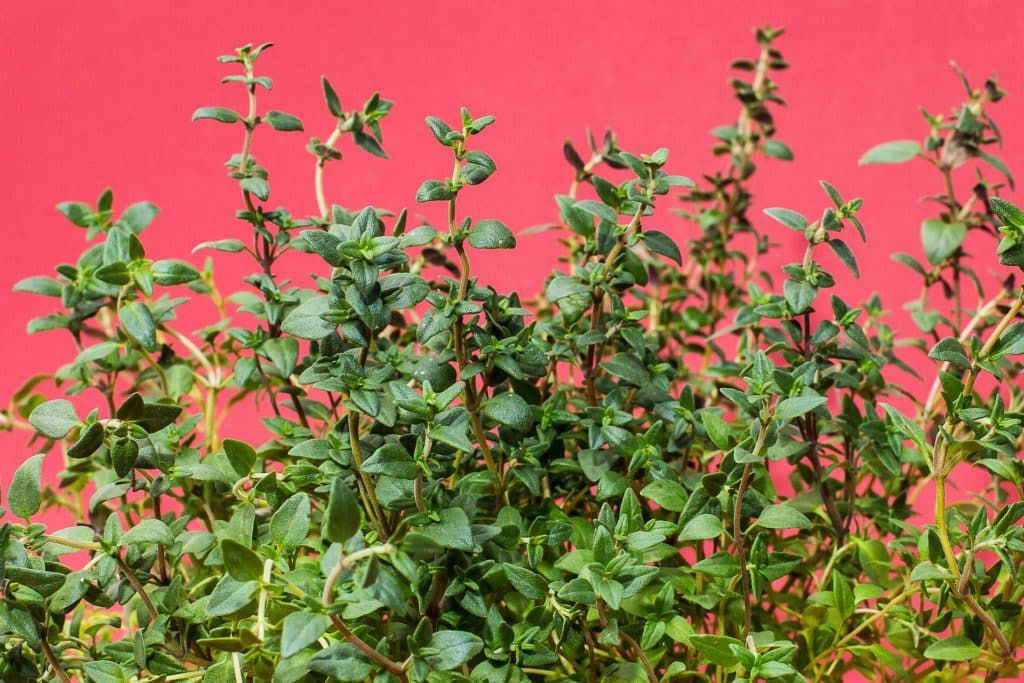
Dr. Rosari Kingston PhD, M.Sc (Herbal medicine) is a medical herbalist practising in Dr. O’Reilly’s integrative clinical practice in Clonakilty, Co. Cork as well as Church Cross, Skibbereen. She considers the integration of herbal medicine with biomedicine to be the future of health care, if the great traditional medical systems, including the Irish healing tradition, are combined with modern research.
Her website can be found at www rosarikingston.ie
Email: rkherbclinic@gmail.com Tel. 028 38428.
Thyme (Thymus vulgaris) is not a glamorous herb. We are used to it and this is probably one of the reasons we no longer take much notice of it. This is a pity because, in years gone by, along with bay and parsley, it formed the bouquet garni that flavoured everything from stock to stews. Now, one can buy bouquet garni in little muslin bags and the fiddly job of creating it is no more, as well as the picking out of the offending twigs that have escaped from the tied-up bunch into the stew or casserole. Because it is so well known, we have forgotten why we went to the trouble of picking those tiny leaves to make a stuffing for roast chicken. So, it is time to learn again why thyme is such an amazing herb.
The reason a bunch of thyme is placed in the cavity of a chicken before roasting is because it kills bacteria. Salmonella is one of those pesky bacteria that cause food poisoning and its presence in fowl is one of the reasons the US poultry industry washes butchered chickens with chlorine. This is to protect consumers from food-borne disease. The same end is achieved in Europe through stringent hygiene control as the EU considers the use of a chlorine wash leads to poorer hygiene standards in poultry facilities. Despite the excellent standard of poultry sold here, it is still a good idea to put a bunch of thyme into that chicken cavity when roasting it, as well as adding it to the pan with other herbs and spices when making curries and casseroles.
Thyme is a nutritionally rich plant and has many disease preventing, and health promoting properties. It has lots of vitamin A and C, as well as riboflavin, calcium, iron, magnesium and zinc. It also contains potassium which influences heart rate and blood pressure beneficially.
Thyme is also very good for colds, and respiratory infections will benefit from it. Drinking thyme tea is a good way of preventing any respiratory infection from taking hold. Ginger may be added to this tea also as it is warming, and this prevents a cold from penetrating the lungs. To make this tea, simply add a few springs of thyme and a few slices of ginger to 500 ml of water. Bring to the boil and then reduce to a low simmer for 15-20 minutes. Let cool and drink 2 -3 cups per day.
Fortunately, it is spring, so our thoughts are turning to gardening and what to plant. Thyme, if not already growing in your garden, should be number one choice. It does not need good soil and is a plant that grows well in stony ground. Planting it in good soil will give you a magnificent looking plant, soft and lush, but a plant with less therapeutic properties than the mean looking specimen growing at the side of the path. Stony ground is needed for drainage and heat will also be reflected from the ground to the plant during the summer. It is important to remember that thyme is a plant of the mountains in Mediterranean regions. The poor soil encourages it to develop secondary metabolites, just to survive in these harsh conditions, and it is these that confer most of its therapeutic potential.
So, whether you are planting a window box, or a large herb harden, let thyme be your first choice. It is a little herb with a lot of punch and will deliver health benefits for you, your family and friends for years to come.


